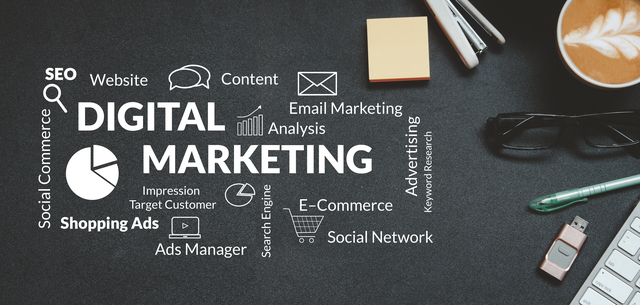As digital landscapes evolve, understanding digital marketing fundamentals, types, and best practices becomes crucial for business success.
Digital marketing stands as a pivotal component of modern business strategies, transcending traditional marketing with its ability to reach a global audience via digital channels. As businesses aim to thrive in a saturated market, recognizing and implementing effective digital marketing techniques is more crucial than ever. This guide delves into the essence of digital marketing, exploring its importance, various types, and the best practices for maximizing its potential.
What is Digital Marketing?
Digital marketing, also known as online or internet marketing, encompasses all marketing efforts that use an electronic device or the internet. Businesses leverage digital channels such as search engines, social media, email, and websites to connect with current and prospective customers. Unlike traditional marketing, which often includes direct mail, print, and billboard advertising, digital marketing uses these digital platforms as the primary promotional medium.
Why Digital Marketing is Important
In today’s digital world, the internet has become the central hub for everything, from business to personal interactions. According to Statista, there are over 5 billion internet users worldwide, providing businesses with an unprecedented opportunity to reach a vast and engaged audience. Digital marketing is not only cost-effective but also offers measurable success, allowing businesses to tailor their strategies based on real-time results.
Types and Strategies of Digital Marketing
Digital marketing is broad and varied. Here are the most effective types and strategies used by successful businesses:
1. Social Media Marketing: This involves promoting a product or service on various social media platforms like Facebook, Instagram, and Twitter. It’s essential for increasing brand exposure and broadening customer reach.
2. Search Engine Optimization (SEO): SEO involves optimizing a website to rank higher in search engine results, thereby increasing website traffic. It targets organic visits and is fundamental for long-term success online.
3. Pay-Per-Click (PPC): PPC is a method of driving traffic to a website by paying a publisher every time the ad is clicked. It’s commonly associated with first-tier search engines like Google AdWords and Bing Ads.
4. Email Marketing: This type of marketing involves sending emails to prospects and customers. Effective email marketing converts prospects into customers and turns one-time buyers into loyal, raving fans.
5. Content Marketing: This strategy revolves around the creation and promotion of content assets to generate brand awareness, traffic growth, lead generation, and customers.
6. Mobile Marketing: This digital marketing strategy is aimed at reaching the target audience on their smartphones, tablets, and other mobile devices, via websites, email, SMS and MMS, social media, and apps.
Benefits of Digital Marketing
Digital marketing’s primary advantage is its ability to reach a targeted audience cost-effectively and measurably. Other benefits include increased brand loyalty and online sales. The direct connection with consumers through digital mediums provides immediate results and data insights, which can help enhance marketing strategies over time.
Digital Marketing Best Practices
To harness the full potential of digital marketing, businesses should follow these best practices:
Set Clear Objectives: Define what you want to achieve with your digital marketing efforts, such as increasing brand awareness, boosting sales, or growing your audience.
Understand Your Audience: Develop a clear picture of your target demographic, preferences, behaviour, and demographics to tailor your content accordingly.
Use the Right Tools: Invest in the right digital marketing tools and platforms that align with your objectives and can help streamline processes and provide detailed insights into your campaigns.
Focus on Content and SEO: Create high-quality, engaging content tailored to your audience’s interests and optimize your website and content for search engines.
Analyze and Adapt: Regularly review the performance of your digital marketing strategies and adapt based on data-driven insights to optimize your ROI.
Bottom Line
Digital marketing offers businesses a powerful way to reach a larger audience more efficiently and cost-effectively than traditional marketing methods. Understanding the different types of digital marketing and how to use them effectively is crucial in today’s digital age. By integrating these strategies into your marketing plan and continuously evolving with the digital landscape, you can enhance your engagement and visibility, ultimately driving greater business success.
